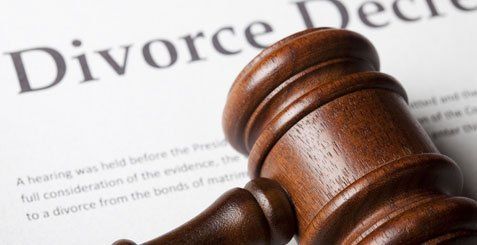How Gaps In Treatment May Affect Your Injury Claim
The Client should be focusing their energy on treatment so they can resume their life as it was prior to the injury
After a personal injury incident, such as a car accident, your No. 1 priority should be to receive medical care. In many cases, particularly those that may benefit from the services of a personal injury attorney, more than one doctors visit will be necessary. Doctors may require a series of tests and follow-up visits to document the recovery process, and it’s important that you keep up with these appointments.
A proven consistency of care will likely benefit you greatly down the line. On the other hand, a “gap” in treatment could strike a serious blow in your settlement negotiations in a personal injury case.
What’s A Gap?
In general, there are two types of gaps in treatment:
First, there is the gap between when you were involved in the incident and when you first got treatment for the injuries from that incident. For example, you were involved in a car accident in June, but did not go see a doctor until December.
The second type of gap is treatment is when you see a doctor immediately after an injury incident, but let several weeks or months go by before you see the doctor again. Skipping appointments and not following doctor’s orders (physical therapy, etc.) may significantly devalue your injury claim.
After a personal injury claim is filed, the insurance company’s adjuster will be looking for any way possible to devalue your claim. One of the first things they’ll look for is a gap in medical treatment. These adjusters will use these gaps as evidence that your injuries are not as severe as you are claiming. Their argument will boil down to this: if you were truly as injured as you say you were, you would not delay treatment or skip doctor’s appointments.
Insurance adjusters may also say that your injuries may not have been incurred during the claimed personal injury incident. Having a documented treatment plan is key.
Many personal injury attorneys, including the attorneys at Jarvis, McArthur & Williams, recommend that their clients keep a log or journal of their doctor’s visits, pain and suffering symptoms, and work logs. This gives both sides a timeline for your injuries and the recovery process.
Legitimate Reasons For A Gap In Treatment
While it’s paramount to avoid any gaps in medical treatment, sometimes these situations are unavoidable. Just because there are gaps in treatment does not mean you are not injured. Some injury victims experience an illness that prevents them from getting to the doctor. Maybe other life events supersede the treatment (surgery, disease, sick relative, etc.). Many times gaps occur because a victim is waiting to see a specialist.
Of course, if you must miss a doctor’s appointment or delay treatment, it’s important that you communicate this with your personal injury attorney. A lawyer will be able to document these gaps and the legitimate reasons behind them, making sure they can’t be used against you by the insurance company in settlement negotiations.
Insurance companies will try to use missed or skipped appointments to their maximum benefit to avoid paying as much as the personal injury case may be worth.
Why Do People Have Gaps In Medical Treatment?
It may seem like a no-brainer, but plenty of people do not make their own well-being a priority after an injury incident. The two most common reasons why people have gaps treatment are:
- The pain is not greater than the “inconvenience” of receiving treatment:This reason is extremely frustrating for personal injury attorneys. Treatment is one of the main sources of evidence in an injury claim, and clients that do not take time to see a doctor make the entire process difficult. If work or other life events are more important to the client than receiving the necessary treatment, those gaps will almost assuredly come back to bite them.
- No health insurance: If you were injured due to someone else’s negligence and do not have health insurance, you can still receive treatment after the incident. You can receive the treatment necessary, but must satisfy the balance of the medical provider’s lien before you receive your cut of the settlement money. If you do not have insurance, the attorneys at Jarvis, McArthur & Williams can attempt to work with medical providers to make sure they are paid at the end of the personal injury case.
Listen To The Doctors
One of the most important pieces of advice you can follow from the personal injury attorneys at Jarvis, McArthur & Williams is to LISTEN AND FOLLOW THE ADVICE OF THE MEDICAL PROVIDERS
Once you begin the healing process by seeing a medical professional, follow orders. If your doctor recommends you take time off from work, then take time off from work. Though it may seem like an inconvenience in the short term, that missed time from work may establish a lost wage claim.
If you are told by a doctor to refrain from physical activities such as athletics, stay on the sideline. If the insurance company can prove that you didn’t slow down – possibly with social media photos and videos – they’ll argue your injuries must not have been that serious.
While the above scenarios detail how your claim may be devalued, your physical well-being may also be affected. Gaps in treatment will delay the healing process for you. The more proactive and disciplined you are during the recovery process, the faster you’ll be back to 100 percent.
Contact Jarvis, McArthur & Williams Today
Having an experienced personal injury lawyer on your side is important. That is why you need to contact the legal team at Jarvis, McArthur & Williams today. Our staff will advise you and your loved ones of your legal options. Contact our office at (802) 658-9411, or www.jarvismcarthur.com








